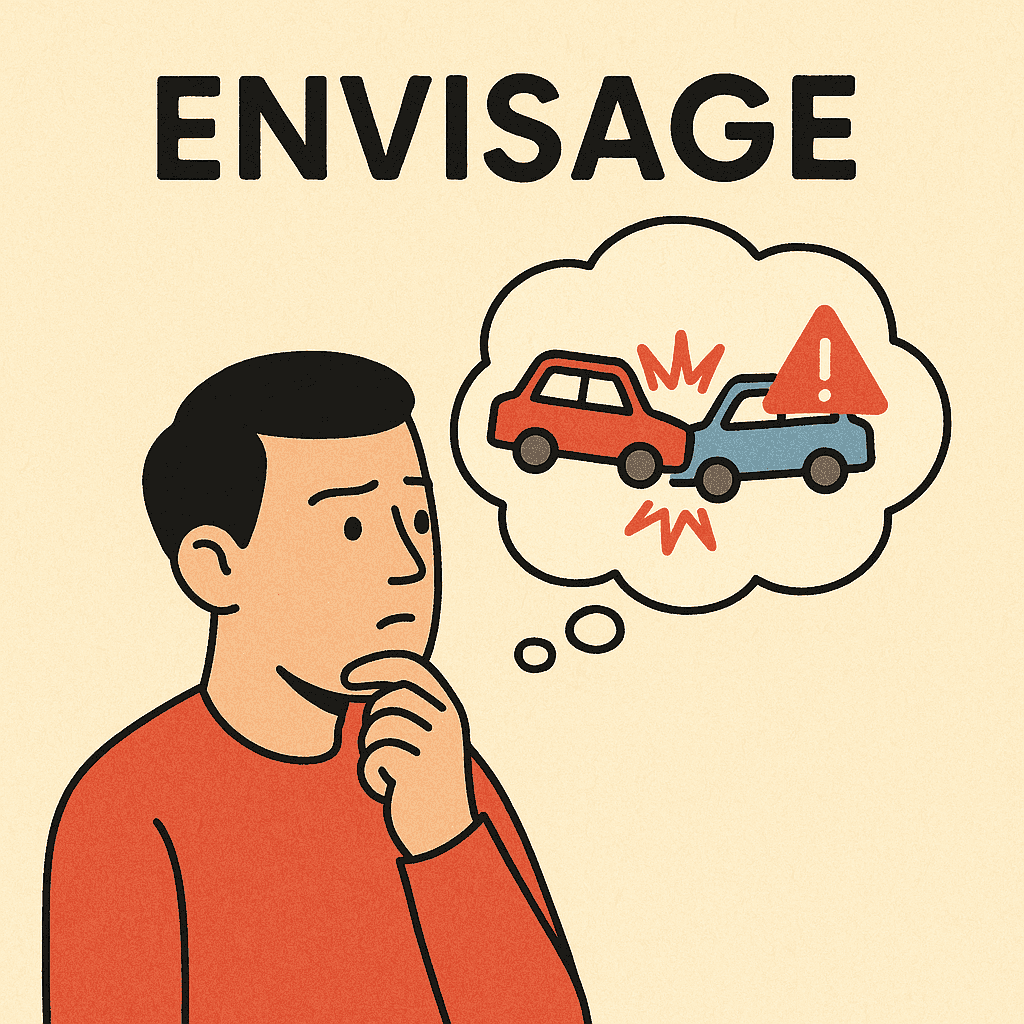Meaning
- Envisage means to imagine or think of something as a possibility in the future.
- It often suggests a realistic or practical vision of what might happen, rather than just fantasy.
- It is commonly used in British English, while envision is more common in American English.
Grammar and Usage
- Part of speech: verb (transitive)
- Structure: envisage + noun / envisage + (someone) doing (something)
- Typically used when predicting, planning, or considering future events.
- Slightly more formal than “imagine.”
Examples of usage in structure:
- "envisage a situation where…"
- "envisage doing something"
- "envisage someone as…"
Common Phrases
- Envisage a future
- Envisage success
- Envisage difficulties
- Envisage change
- Envisage possibilities
Collocations
- Verb + Envisage: can envisage, cannot envisage, try to envisage
- Adjective + Envisage: clearly envisage, realistically envisage
- Envisage + Noun: envisage a future, envisage a solution, envisage a role
Examples
- The government envisages major changes to the education system.
- I cannot envisage working in that company for another ten years.
- She envisaged herself as a teacher, helping children to learn.
- The new project is envisaged to create thousands of jobs.
- He could not envisage a world without electricity.
- The architect envisaged a bridge connecting the two towns.
- They envisaged serious problems arising from the new law.
- We must envisage possible risks before making a decision.
Synonyms or Related
- Envision (US English)
- Imagine
- Picture
- Foresee
- Visualize
- Contemplate

